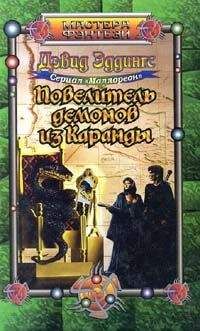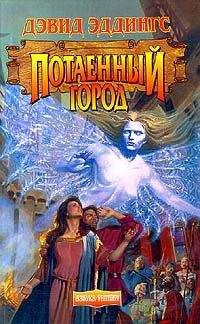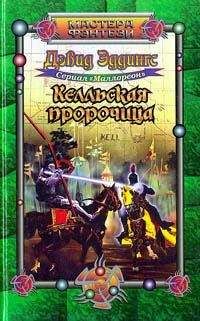David Cook - Horselords
Скачивание начинается... Если скачивание не началось автоматически, пожалуйста нажмите на эту ссылку.
Жалоба
Напишите нам, и мы в срочном порядке примем меры.
Описание книги "Horselords"
Описание и краткое содержание "Horselords" читать бесплатно онлайн.
Yamun ignored the comment. He set aside his kumiss and asked, "Does this governor have any use as a hostage?"
The priest thought for a minute. "I think he is a cousin of the prince."
"Good. What about the other man, the wizard who killed my men?"
Koja hesitated. He knew the man was no relation to Prince Ogandi, but if he revealed that, Yamun would certainly condemn the dong chang to death. That would make him, a priest of Furo, responsible for the murder. Still, if he lied, the khahan would learn the truth sooner or later and would kill the man anyway—and Koja would be in trouble.
"He is not related to anyone I know of, Yamun," Koja finally replied.
"Then he must die. The jagun of the men executed in Manass will want vengeance," explained the khahan. "It is known the wizard still lives. This is a great shame for their jagun, and it will be worse if he is allowed to escape. Therefore, the wizard will be turned over to them for punishment."
Koja cringed. He knew that the men of the jagun would not just kill the dong chang, they would make the wizard's death prolonged and agonizing. The only argument to save the wizard's life Koja could think of was that it was wrong, but it wasn't wrong to Yamun. For him, it was the correct thing to do.
"What of the governor?" the lama asked weakly. "Can I promise the Khazari that he will live?"
"Only if they also turn over the wizard and the men of Shou," Yamun stressed. "I'll keep the prince's cousin as hostage, but the others will die."
Koja pondered the offer, judging whether the Khazari would be likely to accept it. It was clear from the meetings today that the Khazari were frightened by the power and savagery of the khahan's men.
"I think they will accept that," the priest decided sadly. He felt unclean. He had managed to save the life of one man, but only at the cost of the other three.
Yamun suddenly yawned. "I am tired now, Koja, and so are you. It is time to rest. Go now." With a nod, he dismissed the priest.
The audience over, Koja returned to his yurt and quickly went to bed. Already tired, Yamun's yawn had seemed to drain him of his last energy reserves. Ignoring the cold meal Hodj had laid out, Koja went straight to bed.
At first, exhausted though he was, the priest could not sleep. He kept thinking of the day's events, particularly the wizard's fate. Koja felt responsible for Yamun's decision. Fretting and guilt-ridden, he fell into an uneasy slumber.
A noise penetrated the gray fog enclosing the priest. It was the grinding clink of stone against stone. He was outside, still dressed in his sleeping robes. The wind was blowing, but he did not feel the cold.
Looking around, Koja could see that it was still night, somewhere on a grassy plain—or what remained of it. The ground was a jumble of cracks and upheaved earth. Bodies of warriors and horses lay half-buried, half-crushed under the churned ground. Some were Tuigan bodies, clearly identified by the war banners flapping spectrally in the wind. Mingled among the troopers were the bodies of other warriors, dressed in antique armors. Koja could recognize only a few. A man here wore the garb of a Kalmyr chieftain, like one the priest had seen on an ancient scroll. Another wore the outlandish armor of a Susen warrior, easily identified by the flaring earpieces on the battered helm. The bodies encased by the armors were dried husks, their mummified skin stretched tight over the bone.
The odd noise came from up ahead. Koja clambered over the mounds of dirt, past the skeletal warriors and broken lances. Reaching the top of the largest mound, he could see a dark shape, a wall of immense size. To the left and right, it stretched beyond his vision. It stood higher than the five-storied palace of Prince Ogandi in Skardu. At the top was a line of battlements, jutting upward like broken teeth. The hammering sound came from its base.
As he drew closer, Koja saw a line of men, futilely battering the wall's foundation with mauls. Like the dead of the broken land behind Koja, these men were dressed in a weird assortment of ancient clothes. There were soldiers from Kalmyr, Susen, Pazruki, and men from lands he could not identify from their garb.
Each man swung his maul at a single spot, a single stone, oblivious to those around him. The ground reverberated with their blows, but no swing left any mark on the fortification.
Fascinated, Koja walked down the line, invisible to the toilers. He passed by a Kalmyri, then stopped to study the man. It was Hun-kho, the great war chief of Kalmyr. Centuries ago, Hun-kho had driven the Shou out of the wasteland, back behind the Dragonwall, only to be stopped by the Shou construction. Koja recognized him from the history texts in the temple.
The dead warlord continued his monotonous task. Koja resumed his walk. Farther on was the infamous T'oyghla of the Susen, a conqueror in his own right. He, too, never faltered from his work on the wall.
Finally, Koja saw an end to the line and a lone, robed figure, apart from the others. This man held a hammer, but did not swing it at the Dragonwall. Compelled by curiosity, the lama ran forward. When he reached the man, Koja put a hand on the mason's shoulder. The figure turned, revealing the face of his old master, horribly shriveled and gaunt. Smiling, the master handed Koja the hammer.
"This is the wall you have chosen. Break it and be free," the old man intoned. Seizing the sledge, Koja watched as the old master faded before his eyes. Suddenly he was alone with a line of warlords.
Automatically, Koja swung the maul. The stone splintered, splitting the smooth surface of the wall. Koja looked at the crack. Something glittered and slid inside it. He swung again and the crack widened. A shape softly ground against the ragged edges of the stone. The line of warlords stopped, turning in dumb astonishment. The lama peered into the crack. Something moved inside the Dragonwall, something huge and scaled.
"Free me," it whispered, the tones musically floating out through the hole. "Free me, Koja of Khazari."
Koja swung the maul. A painful shock ran through his hands as the sledge hit stone. Chips flew, but the crack was no larger. He swung again and again, jolting with each blow. The priest's breath came in ragged pants. His sweaty hands grasped the maul's handle, trying to keep it from slipping away. He pounded frantically, desperate to widen the crack.
Finally, Koja stopped, exhausted. Looking up, he saw the crack was unchanged, unbroken. It was no wider than it was when he started. There were no chips or scratches in its surface. Frustrated, he slumped down at the foot of the wall, the spirit drained out of him.
"You alone cannot free me, Koja of Khazari, any more than these others who have tried and failed." Lit by a faint glow, the warlords returned to their task.
"Who are you?" Koja gasped to the mysterious voice.
"I am Lord Chien, master of the ocean," the voice said haughtily. "I am the Dragonwall."
"Why can't I free you?" Koja asked as he clambered to his feet.
"I await your lord. Together you will have the might to humble my captors." Dark scales slid past the crack in the wall, then a baleful eye, yellow and catlike, came into view.
"Guide him," the strange voice continued. "Bring your lord to me and together you will free me."
"Why do you call me?" Koja demanded as he stared at the huge eye.
"You are his man. He listens to you. The others, here, know the price of failure. They are doomed to stay, tormenting me, until the wall is no more." Koja looked at the toiling lords and shuddered.
"And if I do these things?" the lama asked, backing away from the crack.
"Then I will have my revenge!" roared the voice. The ground shook with the spirit's words, then the eye disappeared from view.
Shaking, Koja turned. There was his master again, strong and healthy once more. The old man gently took the maul from Koja's grasp. The lama knew it was time for him to leave. Instinctively, he headed back the way he had come, past the conquerors and over the lands of the dead. Just as he reached the hill's top, his master called out faintly. "Everything is in balance, apprentice. Change one thing and you will destroy something else. There are walls all around you. Choose carefully the ones you will destroy." The words echoing around him, Koja walked back into his yurt, into his bed.
Blinking, Koja sat up in the near-darkness of his yurt. The events of his dream remained clear in his mind. Without knowing quite why, the lama hastily dug out his writing supplies. Huddled close to the light of a glowing brazier, Koja began to set down every detail.
14
Dreams and Destinies
On the next few days, the army's energies were consumed in its preparations to once again go on the march. When the khahan had attacked Khazari, Koja had marveled at the flow of orders given; now he was absolutely stunned. Forty thousand, perhaps even fifty thousand men had taken part in the trek to Manass, and even then only ten thousand had actually attacked the city. The rest were stationed at points along the border, partly to provide a threat to the Khazari, but more to ease the problems of finding food and water for tens of thousands of men and horses.
Now arrangements were being made for an even grander campaign. As historian, Koja discharged his duty conscientiously; he listened all he could and noted everything carefully in a growing pile of papers.
Yamun, for his part, organized his troops while waiting for the arrival of more men. Messengers were coming with greater frequency from Hubadai in Semphar. These reports were taken directly to the khahan. Other riders, wearing the stained yellow robes of Tomke's men, also arrived with their letter pouches bulging.
From different sources, Koja knew that there were one hundred and fifty thousand troopers converging on Yamun's camp. The priest guessed that there would be about two hundred thousand men in the army by the time it reached Shou Lung.
Fifty thousand men were already a burden on the land; two hundred thousand men would break it. Already the stocks of grain and grass in this region were low, because the army had not moved for so many days. In his tent, the khahan drew up plans to move the horsemen to new pastures and lay in supplies for the coming campaign.
To do this, Yamun appointed more yurtchis and charged them with the responsibility of gathering supplies. These officials set about their task with swift efficiency. Each day the priest watched another group of blue-robed horsemen, their faces caked in brown dust, return with a herd of lowing cattle, adding the beasts to the growing pastures of cattle and sheep. Other jaguns triumphantly galloped past the tents, leading in fine stallions and mares. These prizes would become the extra steeds that would be needed for the upcoming battles. Trains of oxcarts lumbered in with more goods—bags of millet and barley, sacks of flour, bales of rice, barrels of wine, urns of soy, and bricks of tea, salt, and sugar. The yurtchis, sitting at a makeshift table, diligently counted in all these provisions, making tally marks on long strips of paper.
All these things Koja noted in his papers as he sat in the doorway to his tent, sipping a cup of tea Hodj had prepared. There were so many details that he could only note them briefly. Finally he had to stop, before he ran out of paper. Carefully Koja packed away his writing materials and stood to leave. He still had to inform Yamun of that day's negotiations with the Khazari.
The lama carefully dusted off and adjusted the skirts of his black kalat, the uniform of a nightguard. It was a gift the Kashik insisted he wear; though he was uncomfortable in the dress of a warrior, the priest was not about to insult the generosity and honor of a few thousand tough soldiers. The story of how the priest had saved Yamun's life came out after the couralitai and spread to the guards. In recognition of his deed, they more or less adopted him into their ranks. He was now an honorary Kashik and so had to dress the part.
As the lama left the tent, the arban assigned to be his bodyguard hurried to catch up. What had normally been a lonely hike to the khahan's tent was now quickly becoming a minor procession.
Today the khahan was holding his court outside. He wore a light shirt of overlapping metal scales that covered his chest, and a pair of heavy, blue woolen trousers that disappeared into the loose tops of his boots. Seeing Koja coming, Yamun dismissed his aides and messengers. Rising, the warlord strode forward and grabbed the little man in a mighty hug.
"Anda," he said warmly, stepping back to view Koja's new garb. "I'm glad to see you. The clothes fit you well. Come and sit."
Koja could see that the khahan was in a particularly fine mood. The priest waited for tea and kumiss to be served before speaking, as was proper.
Finally, the drinks were passed. Setting his cup down, Koja began. "Your tea is excellent, Yamun."
The khahan did not acknowledge the compliment. "Have the Khazari surrendered, anda?" he asked casually.
"They have agreed to all your terms, including the dong chang and the Shou ambassadors. There is only one question they ask," Koja guardedly said. "The envoys wish to know who will rule Manass once they surrender. Will Prince Ogandi still have command?"
Yamun clapped his hands in satisfaction. "I've considered your words about ruling the country, priest. I've decided to put Jad in charge of Khazari. He'll make sure they keep the peace. Besides, he is my son. He should rule."
"This is a wise choice, Yamun." Koja was pleased. Apparently he was having some effect on Yamun's policies.
The two drank their kumiss and tea for a little while longer. Finally, Koja spoke again. "Yamun, what do you know of Shou Lung?"
"Many things, anda. You don't think I'm ignorant, do you?" Yamun reached out and refilled his ladle while watching the priest's reaction. "Shou Lung has an emperor, and it is a large country with much wealth, so much that this emperor sends me gifts of great value and princesses of his own blood."
"But what of their army, their defenses, their land?" Koja pressed. "Do you really know how big Shou Lung is?"
"Their army is mostly foot soldiers. They carry machines that shoot arrows—"
"Crossbows," Koja explained.
"Their soldiers are slow and can't keep up with riders. They have some horsemen, but Shou cavalry has never been very good. Even in my father's time, they rode beyond their borders to punish us for raiding. They never had much luck on these trips. So, to protect themselves they keep a wall around their land. These things every khan knows." Yamun presented it all rather matter-of-factly, as if none of it affected him at all.
"Yamun, the Shou are a numerous people, with warriors many times what the Tuigan have. They have many cities much larger than Manass."
"Cities are traps for soldiers, easy to capture." Yamun stretched lazily.
"But there is the Dragonwall," countered Koja.
"Ah, yes, this is the wall they built around their lands," Yamun commented.
"Not all their lands, Great Lord," Koja corrected. "Only along the border with what they call the Plain of Horses—your lands, the steppe."
Подписывайтесь на наши страницы в социальных сетях.
Будьте в курсе последних книжных новинок, комментируйте, обсуждайте. Мы ждём Вас!
Похожие книги на "Horselords"
Книги похожие на "Horselords" читать онлайн или скачать бесплатно полные версии.
Мы рекомендуем Вам зарегистрироваться либо войти на сайт под своим именем.
Отзывы о "David Cook - Horselords"
Отзывы читателей о книге "Horselords", комментарии и мнения людей о произведении.











